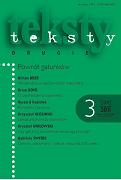


Keywords: Sarmatism; plebeianism; populism; political demand; affect
The article discusses postwar versions of Sarmatism. The different variants are distinguished by their ability to formulate clear political demands and to direct those demands at the authorities. Such a notion of politicalness is absent from the first variant (the plebeian one from the 1960s and 70s), when Socialist mass society appropriated signs of noble culture. The political appears in populist Sarmatism (the “Solidarity” movement; the turn of the 70s and 80s), which combines the demands for state care and for the right of social rebellion. The third option – posthistorical Sarmatism (Fronda, the 90s) – returns to the plebeian version by fighting for the recognition of traditional Polish customs. Finally, dark Sarmatism (Rymkiewicz’s essays; the turn of the first and second decade of the twenty-first century) recovers the political by identifying Sarmatism with an ability to refuse obedience to the powers that be.
More...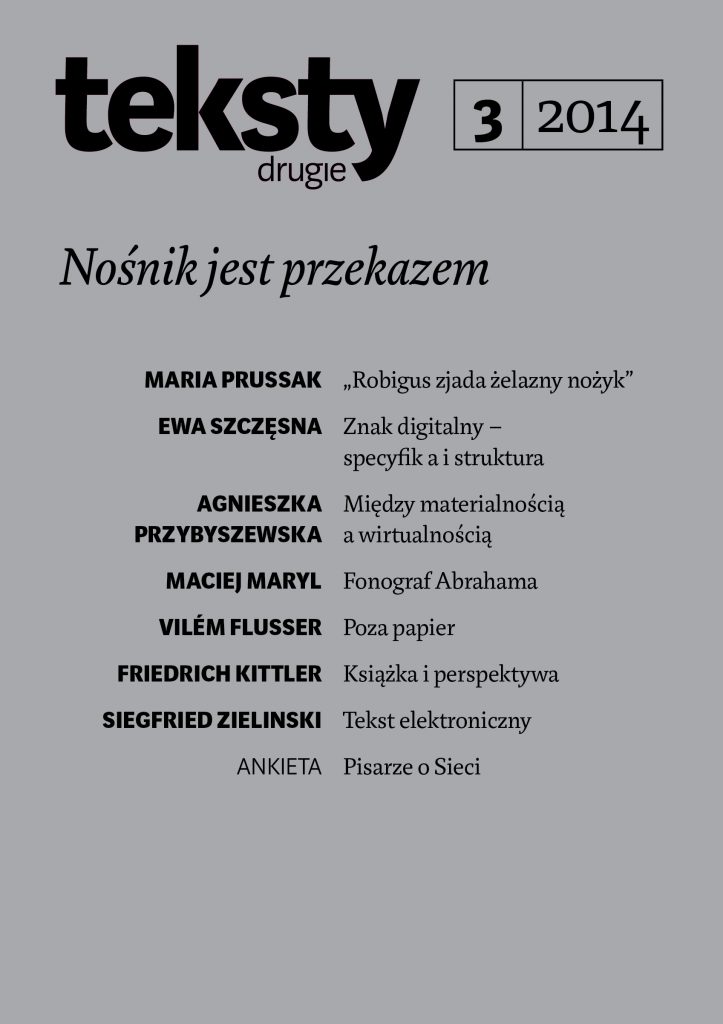
The editing and commenting on Józef Piłsudski's Wawel Address prove that its phraseology was deeply rooted in Juliusz Słowacki's The Spirit King [Król Duch] . Two more general aspects of the address as an example of the poetic prose can be associated with two major kinds of additional ordering: sound texture (mostly conditioned by parallel syntactic structures) and imagery (in the text’s synchronic order individual poetic images symmetrically form a final overriding image).
More...
This paper proposes a new method for the study of world literature. Moretti assumes that within modernity all cultural influences – not necessarily identical with political influences – are part of the struggle for symbolic hegemony. As carriers of modernity literary genres are subjected to various deformations within local cultures. To capture these deformations it is necessary to test selected formal or structural elements (tropes, themes, motifs, narrative) across several national literatures. This is not possible through close reading, but only through distant reading, that is to say through interpretations that build on the work of other literary historians. A literary form analysed in this way represents the literary system embodied in the work (a system of literary inequality), and is an abstraction of social relationships. Hence the study of world literature is an analysis of power.
More...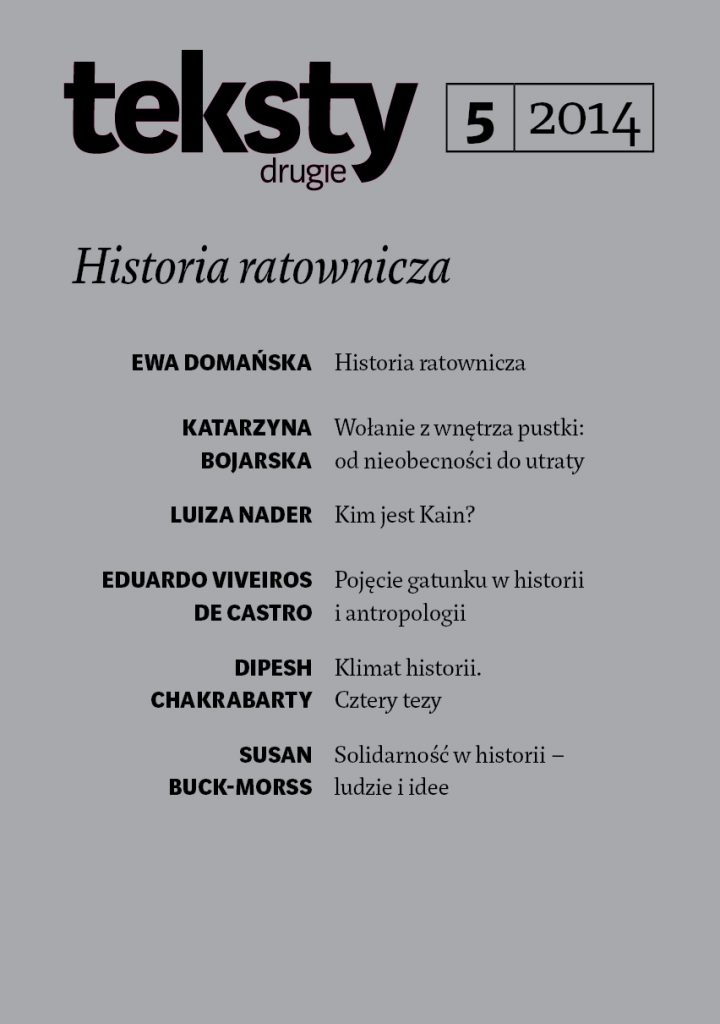
This article discusses this issue’s articles on “rescue history” in the context of trends in the new humanities and posthumanities. Research in “rescue history” moves beyond the contemporary crisis of historical thinking and the experience of the present as “post-past” – a problem rooted in our inability to come to terms with past events that determine the present and replace programs for the future with politics of forgetting and memory. By proposing to reveal and to work through suppressed traumatic experiences of the past, they turn the focus of both humanist thought and social action back towards the issues that are important to the community today and in the future.
More...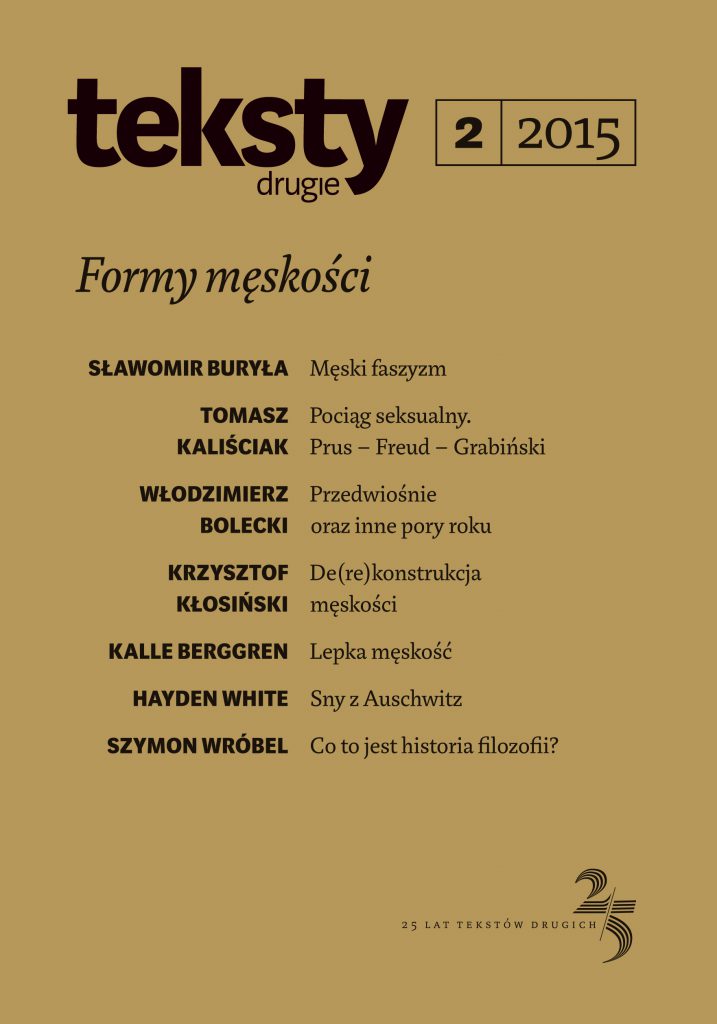
Keywords: hysteria; masculinity; initiation; World War II
Wróbel’s analysis of representations of masculinity in Tadeusz Konwicki’s prose focuses on the ways in which World War II shaped masculinity as an experience. A key feature of Konwicki’s poetics is what Wróbel calls “hysterics” – an excess of emotion that relates to an inability to find one’s bearings in postwar reality. The key to Konwiczki’s prose works is the fact that male characters are dispossessed, not so much of their traditional roles, but of their initiation into masculinity and maturity.
More...
Keywords: masculinities; modernism; postmodernism; deconstruction
This article aims to identify the central tenets of masculinity studies within literary scholarship. An initial condition for male-focussed gender studies is that researchers unanimously call for a deconstruction of patriarchal masculinity, understood as a subject’s strong identity; furthermore it is necessary that “masculinity” be pluralized – a goal expressed by using the plural when referring to such nouns as “man” and “masculinity”. Once the unity of masculinity is deconstructed, it is transposed onto the meta level. This happens through procedures that constitute “masculinity” as a “field” or an “object” of study, providing both a rationale and a separate identity for this academic discipline. By deconstructing the deconstruction they initially intended, researchers perform a “reconstruction” of masculinity. Kłosiński discusses the language of masculinity studies as well as the discipline’s relationship to modernism and postmodernism.
More...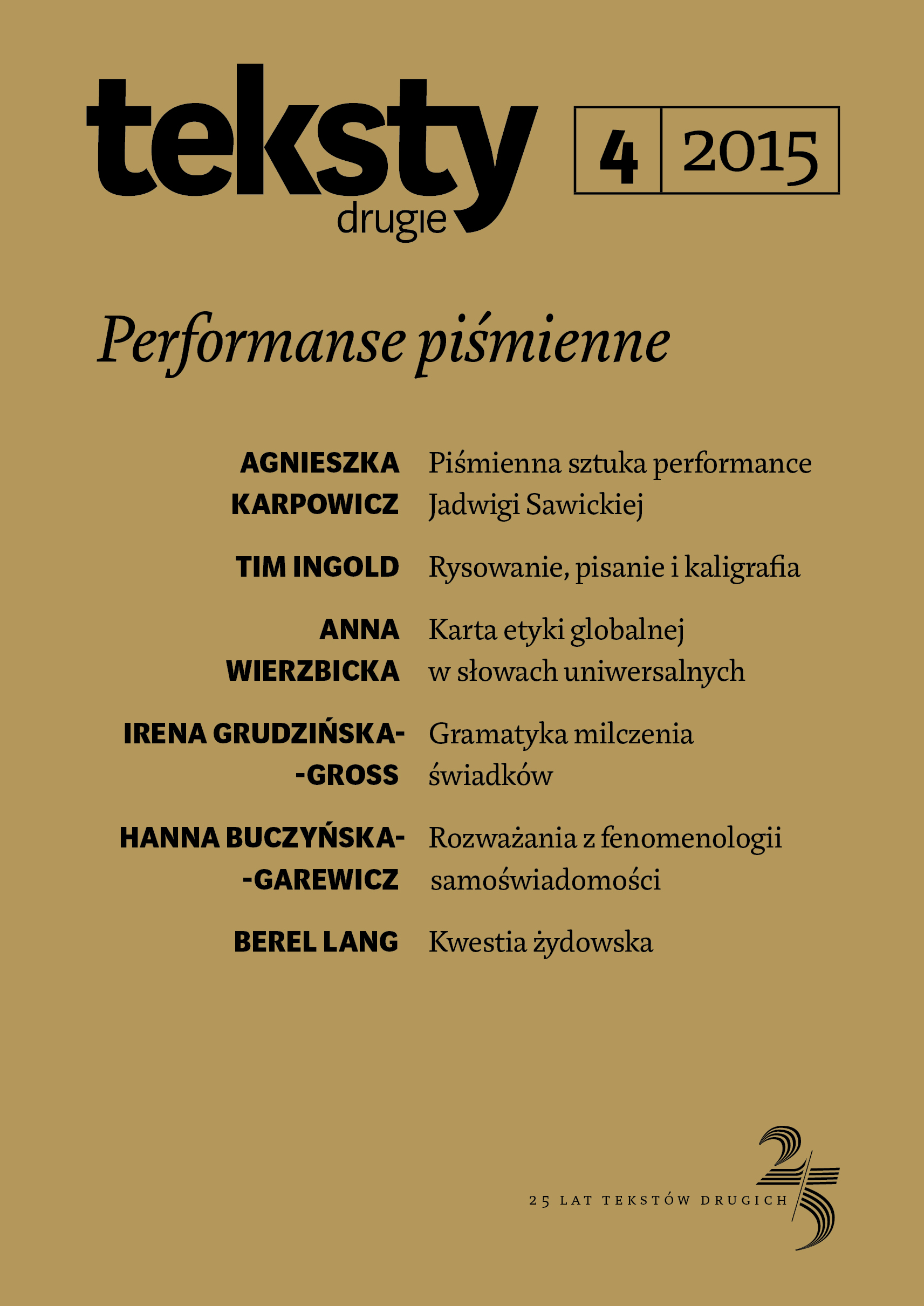
Keywords: literacy practices; indigenous population of Amazonia; cultural anthropology
Buliński’s anthropological interpretation of literacy practices among the E’ñepá in Venezuelan Amazonia consists of four parts. First, he describes the ethnography of literacy practices among this regional ethnic group; second, he summarizes scholarly approaches dealing with writing among the indigenous people of Amazonia; third, he discusses autochtonous terminology used to describe writing, and fourth, he presents the image of writing as a practice that serves to communicate with other kinds of being.
More...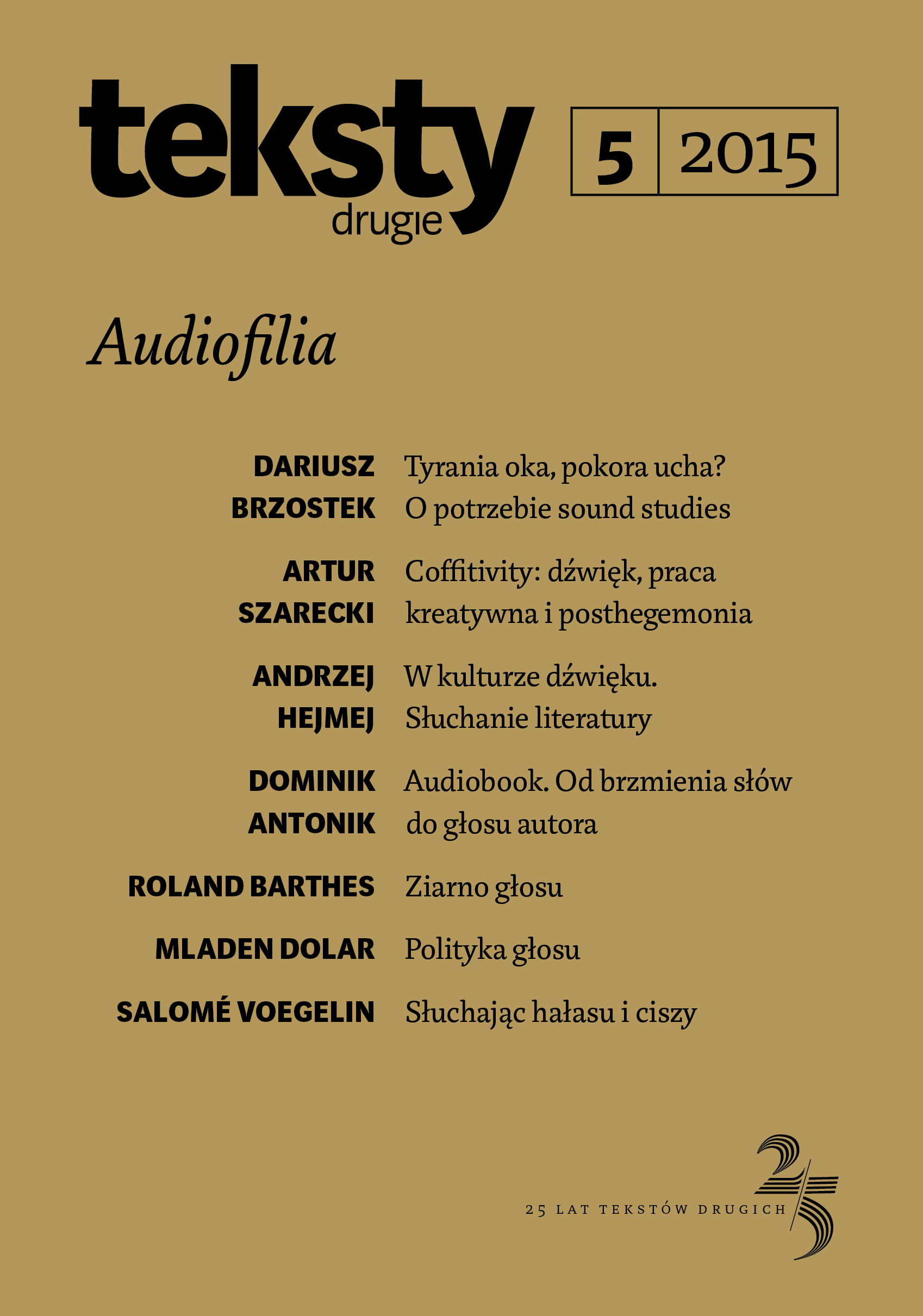
Keywords: David Toop; horror fiction; sound; sound studies; the uncanniness of sound; sound in horror
This article introduces David Toop’s work into Polish literary and cultural studies. Even though Toop represents an important point of reference in the field of sound studies, his work remains largely unknown among scholars in Poland. Marak introduces Toop’s work by focussing on his most important books, but she also demonstrates how his ideas and analytical tools can be applied to literary studies, particularly in the context of horror fiction.
More...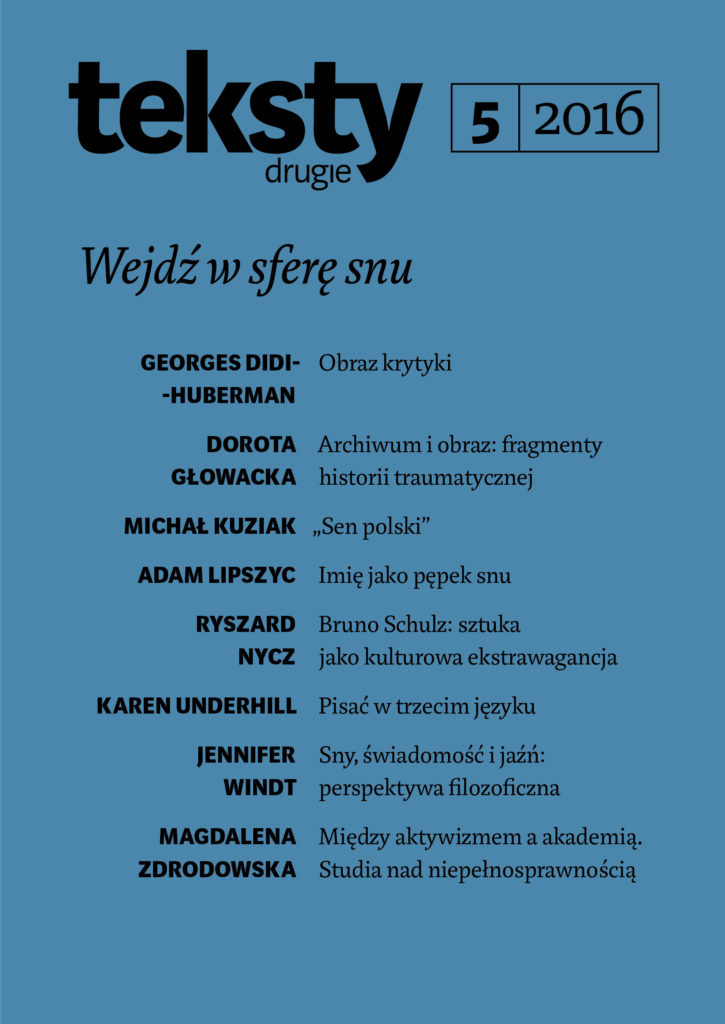
Keywords: image; criticism; negative dialectics; ‘sad knowledge’
The anthropological image of criticism (the image of the individual filtering truth from untruth) focuses on the power and meaning of the gesture, which seems more essential than merely ‘conceptual’ philosophical categories. Negative dialectics proposes a new definition of criticism: in view of the catastrophes of the twentieth century we need a vision of criticism that makes it possible to voice our despair and to create a ‘sad science’ in the place of Nietzsche’s ‘gay science’. To make this possible we must draw on the imagination and the image, for it is images that are brittle enough to elude the totalizing power of conceptualization and at the same time strong enough to become agents of criticism.
More...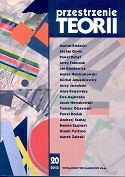
Keywords: interpretation; hermeneutics; transactional interpretation; text; meaning; intentionality;
The article entitled “On interpretation” is an attempt to formulate a viewpoint on the issue of textual interpretation. It presents different ideas related to interpretation, including especially those that are concerned with a text’s meaning and with the way in which it is interpreted by the reader. The author proposes another interpretation method which he calls transactional. The primary concern is how to possibly justify the fundamental character of interpretation and interpretative activity while at the same time preserving and respecting the relative autonomy of an interpreted text.
More...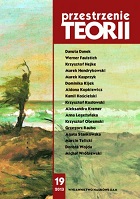
Keywords: theory of interpretation; anthropology of literature; ethics of reading; criticism; cultural identity;
This essay presents a polemic against the anthropology of literature. The author examines the relation between the ethics of interpretation and the discourse of the anthropology of literature as well as cultural studies. She also shows theoretical conditions under which a textual subject appears to be weak and passive and thus becomes just a field in which a researcher can inscribe various cultural identities. In this way a researcher tries to restitute the subject after its poststructural “death”, but he/she might do that only by mediation through social and cultural identities, which he/she actually examines. On the practical level this entanglement causes a situation in which writers and artists create works that fulfill institutional expectations. It would be therefore necessary to establish to what extent an anthropological approach towards a text enables us to invent new models of subjectivity. Without this it would be difficult to consider literary/cultural studies to be a truly critical discipline based on independent, yet collaborative reflection to be found in theoretical and artistic texts alike.
More...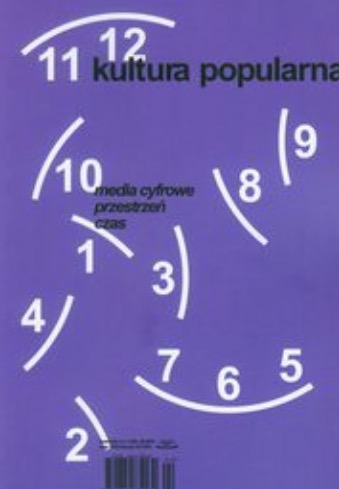
Keywords: popular culture; e-folklore; virtual folklore; cyberculture; anthropology; CAQDAS; e-practice; cyber-practise; cybersurrounding;
New forms of culture – cyberculture – makes new academic brands are appearing rapidly in the last two decades both in anthropology and studies on folklore. The article is tabling the question if the emergence of new e- and cyber- practices and texts make traditional paradigms of culture research to be replaced with new disciplines or methodologies. Is the coherence and continuity of the discipline dependent on the research subject or rather research tools and methodology? The article undertakes the topics of: the influence of the cybersurrounding on research process an emergence of new ethical issues, the possibilities of digital material analysis with new Computer Assisted Qualitative Data Analysis Systems as well as credibility strategies and variance in e-folklore texts and practices.
More...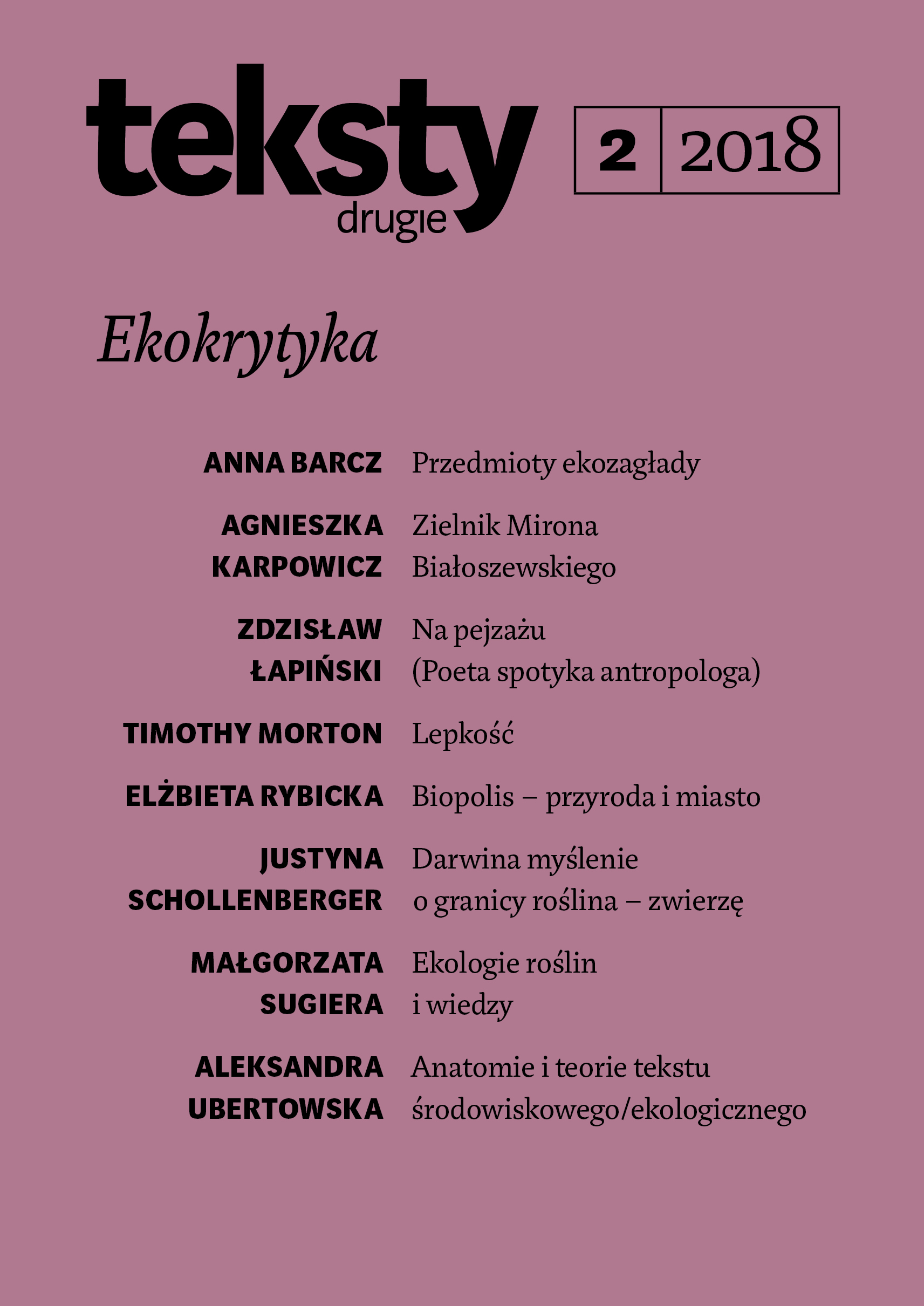
Keywords: Eduard Kohn; beyond-the-human anthropology; Ursula Le Guin; Bruno Latour; circulating reference; Anna Lowenhaupt Tsing; scalability; scientific revolution; knowledge production; sugar plantation;
Taking Ursula Le Guin’s early short story ‘The Author of the Acacia Seeds and Other Extracts from the Journal of the Association of Therolinguistics’ as a point of departure, Sugiera explores Bruno Latour’s concept of circulating reference and Anna Lowenhaupt Tsing’s notion of scalability as two complementary critical perspectives on the paradigm of accumulating and ordering knowledge. This paradigm, which emerged with the scientific revolution and applies to this day, is based on a model that is fundamental for modernity, namely that of the sugar plantation in the New World. Its transposition into the experimental sciences in the second half of the seventeenth century is closely related to the appearance of new public institutions in the British Isles, namely the coffeehouses that acted as ‘penny universities’. Sugiera concludes by proposing new scientific practices inspired by trends in decolonialism, especially Eduard Kohn’s beyondthe-human anthropology.
More...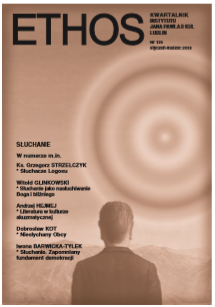
Keywords: literature; voice; auditory perception; acosmatic culture; media society;
Modern auditory experience has been carved out in the 20th and 21st centuries in the context of technological advancement and media expansion. The author puts forward the thesis that members of a media society necessarily live in an audio-visual culture bearing acousmatic qualities. The approach used throughout the paper highlights the fact that modern acousmatic experience, which involves various forms of indirect listening, or listening with a ‘new ear’ (according to Pierre Schaeffer’s formulation), has been reconfiguring the hierarchy of sense perception since the early 20th century. With a view to the specificity of auditory experience, the author reconstructs ways in which it affects the forms of literary phenomena, the practices of the reception of literary works, as well as their understanding as such. In this context, a privileged place belongs to the phenomenon of ‘voice,’ considered here in two different aspects, namely, as voice in praesentia and voice in absentia.
More...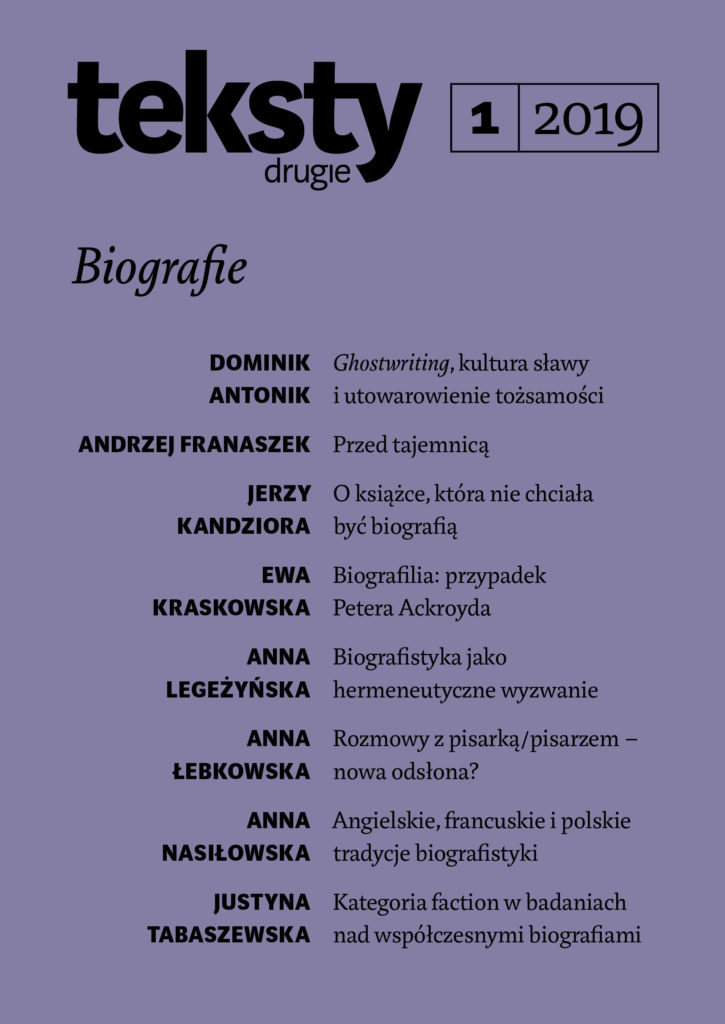
Keywords: Zbigniew Herbert; life writing; biographer’s work; writer’s archive
Franaszek discusses the process of producing a biography. Drawing on accounts of other biographers as well as his own experience writing about the life and work of Czesław Miłosz and Zbigniew Herbert he asks what qualities mark a good biographer; he also discusses the specificity of the most important sources (such as a writer’s archives or witness accounts). For Franaszek, a literary biography is situated in a space between academic writing and literature. Finally he explores the tenstion between the “objectivism” that is more or less available to the biographer and the readers’ expectations, which the biographer often fails to meet.
More...
Keywords: contemporary literature; affect; body; gender; literary genre; interview with a (woman) writer
Łebkowska explores the returning wave of “interviews with writers” with a focus on woman writers, who had long been neglected in Poland. Among the common features of this new variety she identifies a certain vitalism (often associated with being in touch with nature or with the freedom of a traveller) as well as a turn towards the everyday, the body, emotions and a problematisation of human relationships. Compared with older interviews this new variety is marked by intervention, a desire to speak up, based on the belief that the silence must be broken – at least with regard to certain topics. There are many answers to the question why such interviews continue to thrive, but the one that seems most relevant today centres on the idea that a writer’s voice must be heard.
More...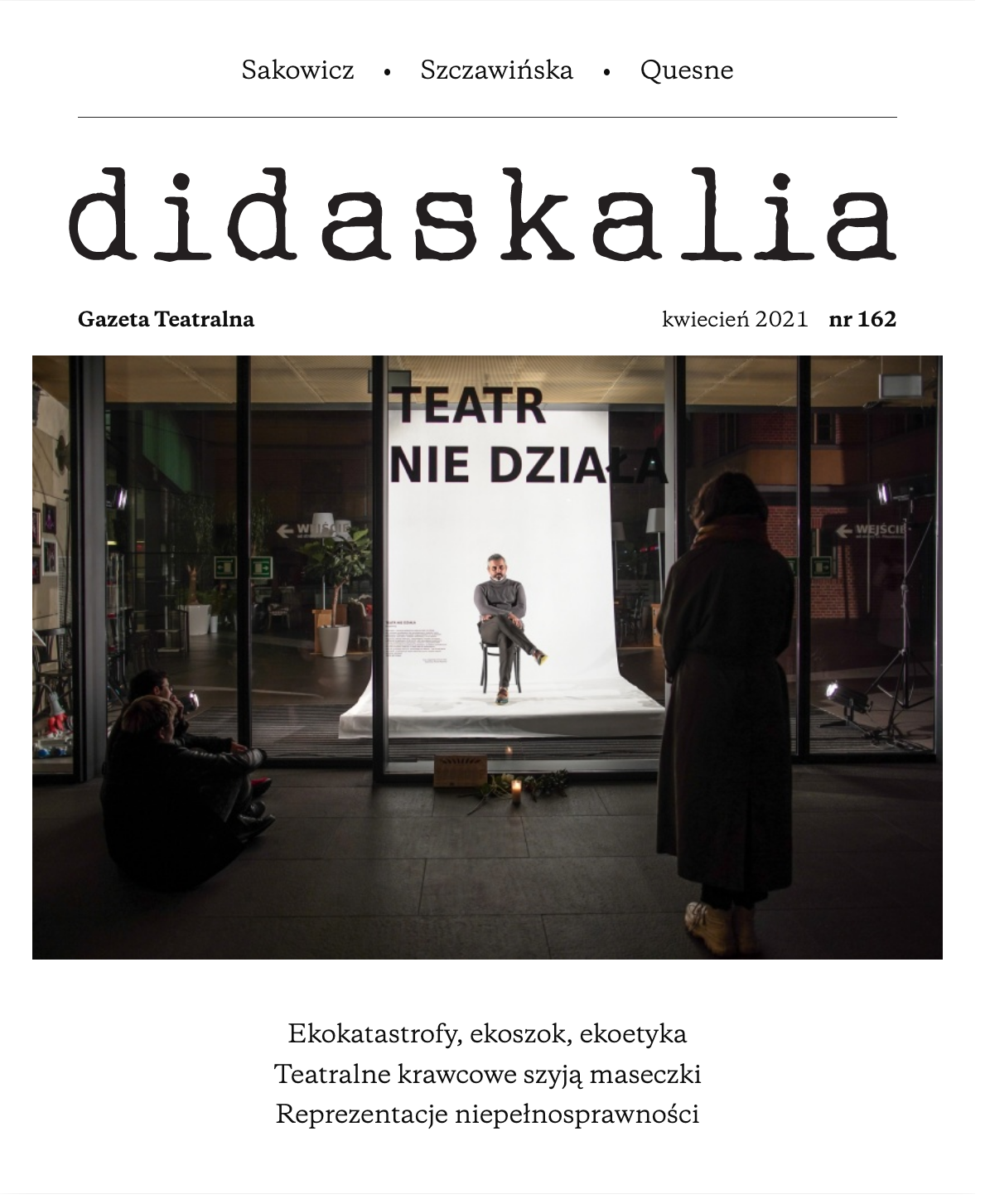
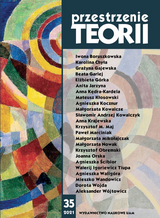
Keywords: world literature; history of Polish literature; intercultural transfer; canon; translation; reception;
The article discusses the research proposal presented in Światowa historia literatury polskiej. Interpretacje [World History of Polish Literature. Interpretations], edited by Magdalena Popiel, Tomasz Bilczewski and Stanley Bill. Mikołajczak contrasts the research concept of world literature with the dominant approaches to the world literature in the area of contemporary literary studies and the traditional model of the history of literature. She reflects on the situation of Polish literature in the world, taking into account the ways in which Polish works circulate in other cultural circles, the possibilities and limitations of translation as well as shifts within the canon. She also indicates the opportunities that open up for Polish literature in the global context.
More...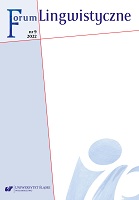
Keywords: Leader of the State; New Year’s Address; Ritual Genre; Media Discourse; Russia; Germany; Poland;
Review of: Marta Noińska, New Year’s Address of the Leader of the State as a Ritual Genre of Media Discourse Based on Russian, German and Polish Performances. Medialinguistic Analysis (Wydawnictwo Uniwersytetu Gdańskiego. Gdańsk, 2020, 342 s.)
More...